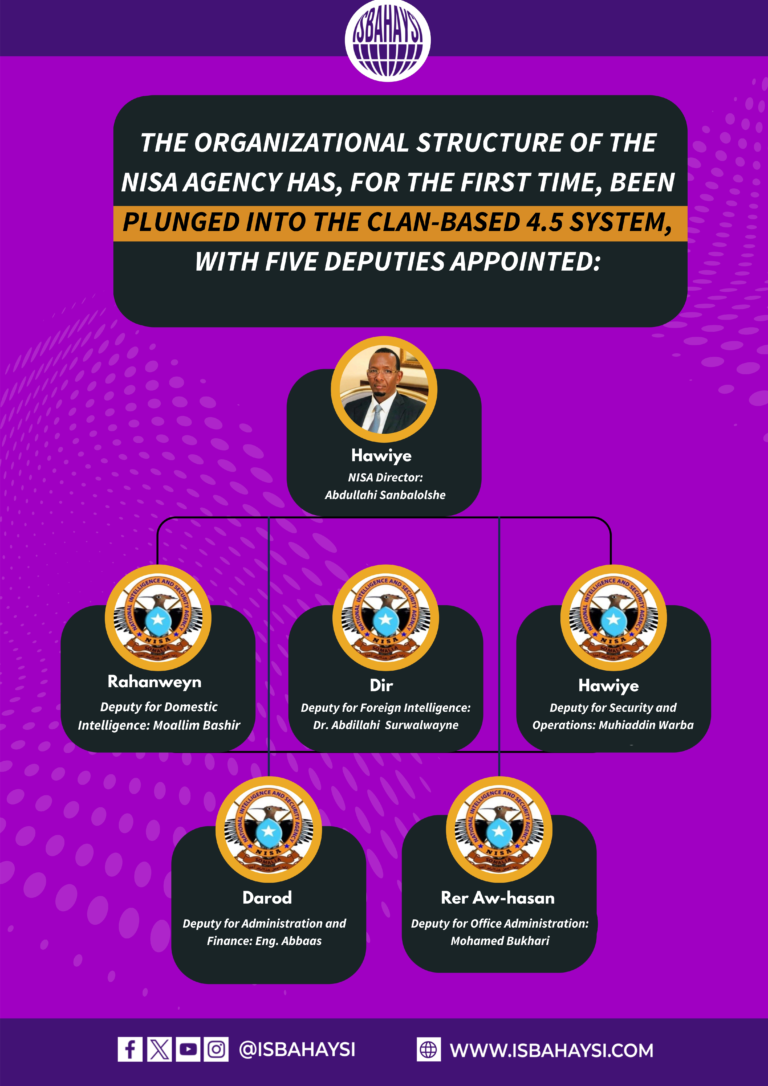
The National Intelligence and Security Agency (NISA), one of Somalia’s most crucial institutions responsible for ensuring national security, has for the first time been officially subjected to the clan-based 4.5 power-sharing system. Previously, NISA operated with a single deputy, but now the structure has been altered to include five deputies, each occupying the following roles:
1. Deputy for Domestic Intelligence: Moallim Bashir
2. Deputy for Foreign Intelligence: Dr. Abdullahi Abdullahi Surwalweyne
3. Deputy for Administration and Finance: Eng. Abbas
4. Deputy for Security and Operations: Mohiaddin Warbac
5. Deputy for Office Administration: Mohamed Bukhari
While high-level political positions in Somalia are typically allocated using the 4.5 system, security institutions have historically been excluded from such clan-based practices, as they are supposed to prioritize competence and professionalism. However, the recent changes at NISA indicate a significant shift, with appointments of deputies and lower-ranking officers now being influenced by clan affiliations.
This development coincides with other controversial actions, such as transferring some military bases to private businessmen and a recent presidential decree stripping honors and recognition from one of Somalia’s national heroes, the late General Goordan, who sacrificed his life defending the country.
A major military base previously named after the General has now been renamed after an Emirati officer who was recently killed in Mogadishu while pursuing his country’s interests. This has sparked outrage, particularly as many Somali officers continue to die daily on the frontlines in the fight to secure the nation’s peace.
President Hassan Sheikh Mohamud’s administration is facing growing accusations of deeply embedding clan politics, disbanding and weakening the national forces, misappropriating military resources, and prioritizing business interests over national security. These actions are said to have undermined the army’s capability and delayed progress in the fight against terrorist groups.